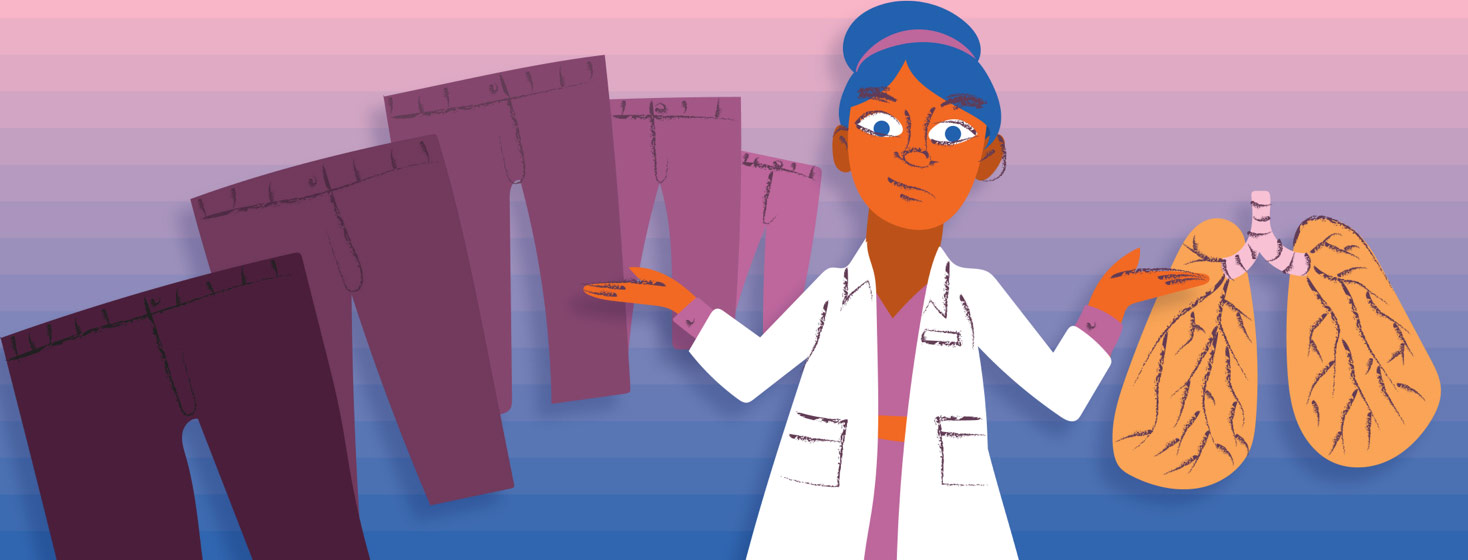Studies On Weight And Asthma
Weight can be a touchy subject, but it can be an important thing to talk about, especially if you have a chronic condition like asthma. There have been several studies on the relationship between weight and asthma, and many of these studies demonstrate that having a BMI (body mass index) of 30 or higher, which qualifies as being obese, can have a negative effect on asthma.1
It is important to note that losing weight will not cure asthma. Weight is also not the only contributing factor to the severity of asthma, nor is it the cause of asthma. However, maintaining a healthy weight does have the potential to improve asthma symptoms.
How does weight affect asthma?
While there is not an exact reason why weight affects asthma, there are several likely theories. For those who are overweight or obese, the extra weight can put pressure on and constrict your chest and lungs. A higher percentage of fat in the body can lead to more inflammation in the body and lungs.2 Carry extra weight can put extra strain on the lungs.3
According to the CDC, “For all age groups, adults with obesity had significantly higher current asthma prevalence than adults in the normal weight and overweight categories. For example, among adults aged 20–39, asthma prevalence was 11.1% among adults with obesity, 8.1% among adults in the overweight category, and 7.5% among adults in the normal weight category”.1
From this data, it is clear that there is a connection between being overweight/obese and having asthma.
Medications, obesity, and asthma
Weight can also affect asthma due to the different effects of medication usage. People who have asthma and a BMI over 30 respond differently to asthma medications, compared to people who have asthma and a lower BMI. Two examples of this are, "Obese people with asthma have worse asthma control when treated with theophylline, a drug used in therapy for asthma that relaxes bronchial smooth muscle. Other research groups have reported that obesity reduces the effectiveness of medications like inhaled corticosteroids."2
Weight is not the only contribution to asthma
Skinny, lean people, overweight people, athletes, and obese people all have asthma. Being overweight or obese does not cause asthma, nor is it the only reason for asthma symptoms. Even if you are obese or overweight, learning what your triggers are, creating an asthma action plan, and figuring out what asthma medications to use remains important.
If you’re interested in losing weight…
Maybe your doctor mentioned losing weight would be helpful. Maybe you feel motivated to change your lifestyle. Losing weight can certainly be a challenge, especially if exercise is a trigger for your asthma. Luckily, there are so many ways to be active; like walking, yoga, lifting weights, hiking, pilates, workout classes, dancing, hula hooping, running, gardening, biking, and more! If one type of movement or exercise doesn’t work for you, like running, try walking every day or yoga.
Additionally, the way you eat has a huge impact on your weight. Discuss your eating habits with your doctor, or reach out to a nutritionist or health coach. Something you can do right away to aid in weight loss is limit or completely cut out fast food, soda, and other foods high in sugar. Certain diets, like the Mediterranean diet or plant-based diet, may help aid in weight loss. Be sure to include a lot of whole foods, like fruits, vegetables, and whole grains, into your diet.4
Final observations on weight and asthma
Learning how to manage your asthma does not happen overnight, and neither does losing weight. Always be patient and kind to yourself and your body! Managing a chronic condition is no easy task, and neither is losing weight. Losing weight may help improve your asthma symptoms, but remember to take it one day at a time.

Join the conversation